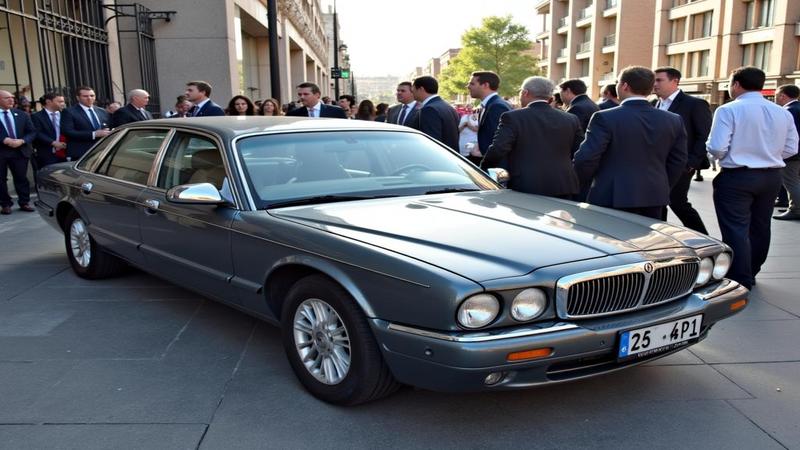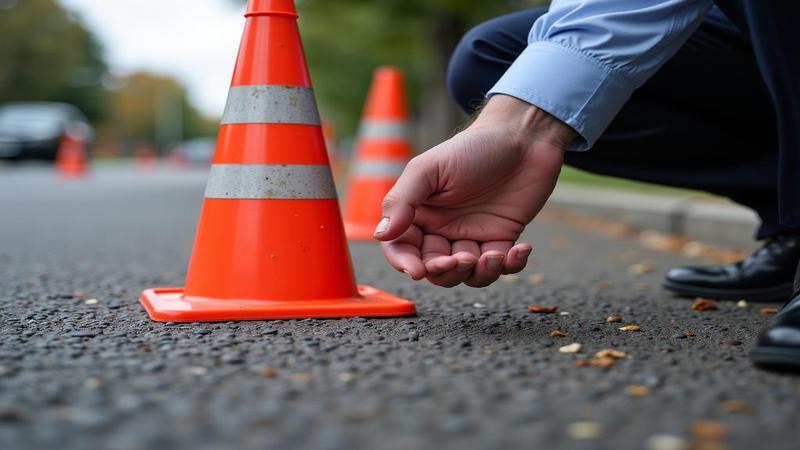Man Mistakes Russian Consulate for Drive-Thru; Orders Sanctions To-Go

Authorities confirm a 39-year-old driver attempted high-speed foreign policy, introducing his sedan to the Russian Consulate’s frontage with the enthusiasm of a dog greeting a glass door. The door won. So did gravity, paperwork, and the eternal truth that architecture is undefeated.
Police say one officer was injured, which is the bureaucratic equivalent of a klaxon, a kettle drum, and a thousand staplers all going off at once. Paramedics treated the scene like a group chat—too many participants, none of whom asked to be there.
Consulates are meant for visas, stern fonts, and statements about sovereignty, not surprise bumper diplomacy. Staff reportedly responded with the calm of a glacier reading a Yelp review, and a sentence that began, “This is a sovereign driveway” and somehow got scarier from there.
Witnesses described the crash as “like a heist movie directed by a GPS that hates borders.” One neighbor said the car appeared to attempt an annexation of the footpath before being sanctioned by a hedge with excellent posture.
By lunchtime, local hardware stores noted an uptick in searches for impact-rated driveway bollards. A nearby electrician wondered if the driver’s turn signal had defected mid-blink, seeking asylum inside the fuse box and leaving the brakes to pursue a solo career.
The consulate issued a statement that read like a shirt with too many buttons: formal, tight, and daring you to exhale. It thanked responders, condemned vehicular improvisation, and clarified that the only acceptable sudden arrivals are parcels and international incidents with a return address.

Police briefed the press using the traditional Australian dialect of directness and understatement. The phrase “allegedly” did a lot of heavy lifting, like a forklift hired to move a rumor into a courtroom.
Amateur analysts quickly cobbled together a montage of nearby security footage, turning the moment into a micro-episode of geopolitics meets concrete. This being the internet, someone added captions, a synth soundtrack, and a shopping link for witness-friendly dash cam with automatic upload.
Experts debated motive, method, and whether navigation apps should include a setting called “Avoid Consulates, Embassies, and Unfilmable Life Choices.” The car’s GPS reportedly urged, “Turn right,” then whispered, “into history,” like a melodramatic museum docent with a speed fetish.
From my seat between a departure gate and a diplomatic shrug, the supply chain was clear: outrage shipped overnight, irony on backorder, and cones delivered in bulk from the ministry of bright plastic. Influence traveled by siren, press release, and the universal language of a clipboard.
International reaction arrived with the precision of an orchestra tuning: a clarinet of condemnation, a tuba of whataboutism, and three violins asking if there’s parking validation for unintended detours. Somewhere, a think tank released a graph proving that momentum is bipartisan.
As the scene cleared, the world returned to its scheduled programming: cautious statements, cones at attention, and a sedan learning the ancient lesson that some doors are not for entering, but for ending stories. Next time, sir, please pull forward to Window Two—History will be with you in a moment, and the bollards are already on the menu.
